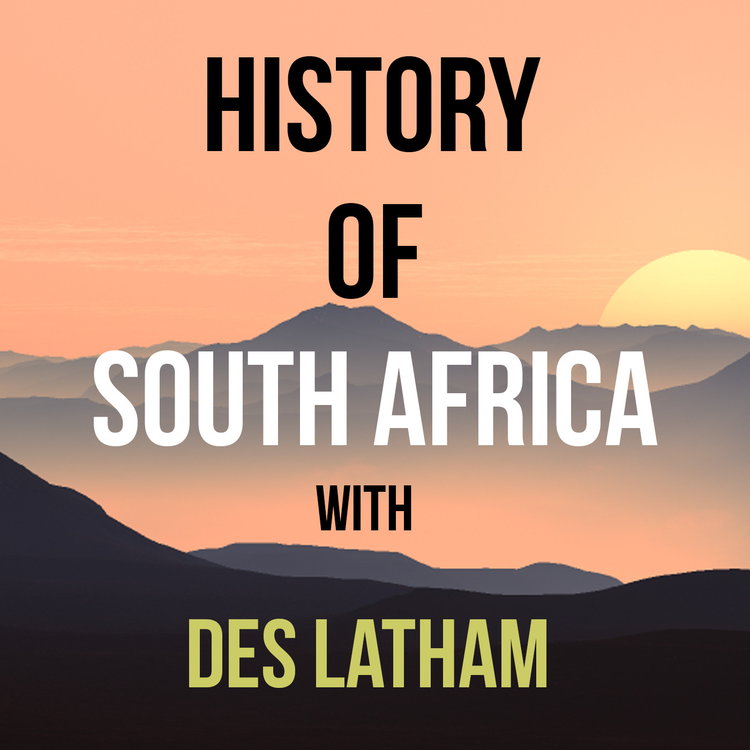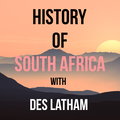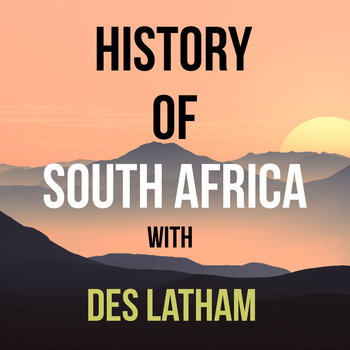
Episode 174 - The 1848 British defeat of the Boers at the Battle of Boomplaats near Bloemfontein
Loading player...
This is episode 174.
First off, a big thank you to all the folks who’ve supported me and for sharing so many personal stories of your ancestry. Particularly Jane who is a font of knowledge about the Williams family, and John who’s been communicating about the Transkei.
Please also sign up for the weekly newsletter by heading off to desmondlatham.blog - you can also email me from that site.
When we left off episode 173, King Mswati the first was running out of patience with his elder brother Somcuba. Voortrekker leader Hendrick Potgieter had also left the area north of the Swazi territory, settling in the Zoutpansberg. It was his last trek.
He’d signed a treaty with Bapedi chief Sekwati, which had precluded any proper agreement with the other Voortrekkers around Lydenburg. With Potgieter gone, however, things were about to change.
We need to swing back across the vast land to the region south of the Vaal River because dramatic events were taking place in 1848 - clashes between the British empire and the trekkers. By now, the area between the Orange and the Vaal was an imbroglio, elements of every type of society that existed in southern Africa for millennia could be found scattered across the region.
Hunters and gatherers, pastoralists, farmers, San, Khoesan, Khoekhoe, BaSotho, Afrikaners, Boers, mixed race Griqua and Koranna, and British settlers could be found here. In some cases different combinations of these peoples lived together cheek by jowel, many combinations of cultures, languages and political systems. A classic frontier situation, with intermingling and very little structured relationship charactersing the mingling. Some of the San, Khoekhoe and even Basotho were now incorporated as servants of the Boers, and each of those groups were divided into rival political commuties.
Bands of San still hunted through this area, despite attempts to eradicate them, a kind of ethnic cleansing you’ve heard about. In the south east, on either side of the Caledon River, rival Sotho states existed, under Moshoeshoe, Moletsane, Sikonyela, and Moroka — each of these had their own tame missionary living alongside as an insurance policy against each other and the British and Boers.
By 1848 the new Governor of the Cape, Sir Harry Smith, had begun to experiment with British expansionism that he’d observed in India, assuming British culture and traditions, the empire’s institutions, were superior to all other. Smith loved to oversimplify complex problems, and the made him a natural expansionist and a man likely to make big mistakes. Within two months of arriving in Cape Town in December 1847, he had extended the frontiers of the Cape Colony to the Orange River in the arid north west of the Cape. This was between the area known as Ramah and the Atlantic Ocean. He’d annexed the land between the Keiskamma River and the Kraai River Basin in the east, booted out the amaXhosa, and annexed two contiguous areas as seperate British colonies — British Caffraria between the Keiskamma and the Kei River, and a second area that became known as the Orange River Sovereignty between the Orange and Vaal Rivers. Pretorius was so incensed that he began fanning the flames of anti-British opposition, or probably to be more accurate, anti-Smith opposition. This resentment boiled over in July 1848 when Pretorius with commandants Stander, Kock and Mocke led a powerful force of 200 Transvalers and about 800 Free Staters along with a 3 pounder artillery gun into Bloemfontein. The preamble to the Battle of Boomplaats had begun.
First off, a big thank you to all the folks who’ve supported me and for sharing so many personal stories of your ancestry. Particularly Jane who is a font of knowledge about the Williams family, and John who’s been communicating about the Transkei.
Please also sign up for the weekly newsletter by heading off to desmondlatham.blog - you can also email me from that site.
When we left off episode 173, King Mswati the first was running out of patience with his elder brother Somcuba. Voortrekker leader Hendrick Potgieter had also left the area north of the Swazi territory, settling in the Zoutpansberg. It was his last trek.
He’d signed a treaty with Bapedi chief Sekwati, which had precluded any proper agreement with the other Voortrekkers around Lydenburg. With Potgieter gone, however, things were about to change.
We need to swing back across the vast land to the region south of the Vaal River because dramatic events were taking place in 1848 - clashes between the British empire and the trekkers. By now, the area between the Orange and the Vaal was an imbroglio, elements of every type of society that existed in southern Africa for millennia could be found scattered across the region.
Hunters and gatherers, pastoralists, farmers, San, Khoesan, Khoekhoe, BaSotho, Afrikaners, Boers, mixed race Griqua and Koranna, and British settlers could be found here. In some cases different combinations of these peoples lived together cheek by jowel, many combinations of cultures, languages and political systems. A classic frontier situation, with intermingling and very little structured relationship charactersing the mingling. Some of the San, Khoekhoe and even Basotho were now incorporated as servants of the Boers, and each of those groups were divided into rival political commuties.
Bands of San still hunted through this area, despite attempts to eradicate them, a kind of ethnic cleansing you’ve heard about. In the south east, on either side of the Caledon River, rival Sotho states existed, under Moshoeshoe, Moletsane, Sikonyela, and Moroka — each of these had their own tame missionary living alongside as an insurance policy against each other and the British and Boers.
By 1848 the new Governor of the Cape, Sir Harry Smith, had begun to experiment with British expansionism that he’d observed in India, assuming British culture and traditions, the empire’s institutions, were superior to all other. Smith loved to oversimplify complex problems, and the made him a natural expansionist and a man likely to make big mistakes. Within two months of arriving in Cape Town in December 1847, he had extended the frontiers of the Cape Colony to the Orange River in the arid north west of the Cape. This was between the area known as Ramah and the Atlantic Ocean. He’d annexed the land between the Keiskamma River and the Kraai River Basin in the east, booted out the amaXhosa, and annexed two contiguous areas as seperate British colonies — British Caffraria between the Keiskamma and the Kei River, and a second area that became known as the Orange River Sovereignty between the Orange and Vaal Rivers. Pretorius was so incensed that he began fanning the flames of anti-British opposition, or probably to be more accurate, anti-Smith opposition. This resentment boiled over in July 1848 when Pretorius with commandants Stander, Kock and Mocke led a powerful force of 200 Transvalers and about 800 Free Staters along with a 3 pounder artillery gun into Bloemfontein. The preamble to the Battle of Boomplaats had begun.

